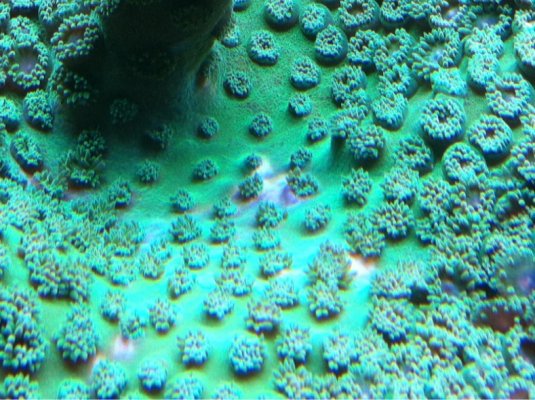Breakthecycle2
Aquarium Advice FINatic
Ughhhh!!!!!!
I did a water change yesterday. Against my better judgement, I bought unsalted RO water and salted it my self. Two things then happened. After adding salt, I tested and tested and tested. I also added Kent Super buffer to the water. Well, after not paying attention, I added to my tank. The buffer did not dissolve correctly because of the salt water. My tank turned all milky. I tested the Salinity and it read 1.30 from 1.24. I did another water change, this time just fresh. This morning, I get up and all the corals look extremely bad, my wrasse, fire shrimp and possibly all my snails are dead. The rest of the inverts that I can see, appear to be alive but are not moving. My clowns are just hovering at the bottom of the tank. No ammonia, nitrites or nitrates. Salinity is about 1.24. HELP ME!
I did a water change yesterday. Against my better judgement, I bought unsalted RO water and salted it my self. Two things then happened. After adding salt, I tested and tested and tested. I also added Kent Super buffer to the water. Well, after not paying attention, I added to my tank. The buffer did not dissolve correctly because of the salt water. My tank turned all milky. I tested the Salinity and it read 1.30 from 1.24. I did another water change, this time just fresh. This morning, I get up and all the corals look extremely bad, my wrasse, fire shrimp and possibly all my snails are dead. The rest of the inverts that I can see, appear to be alive but are not moving. My clowns are just hovering at the bottom of the tank. No ammonia, nitrites or nitrates. Salinity is about 1.24. HELP ME!

